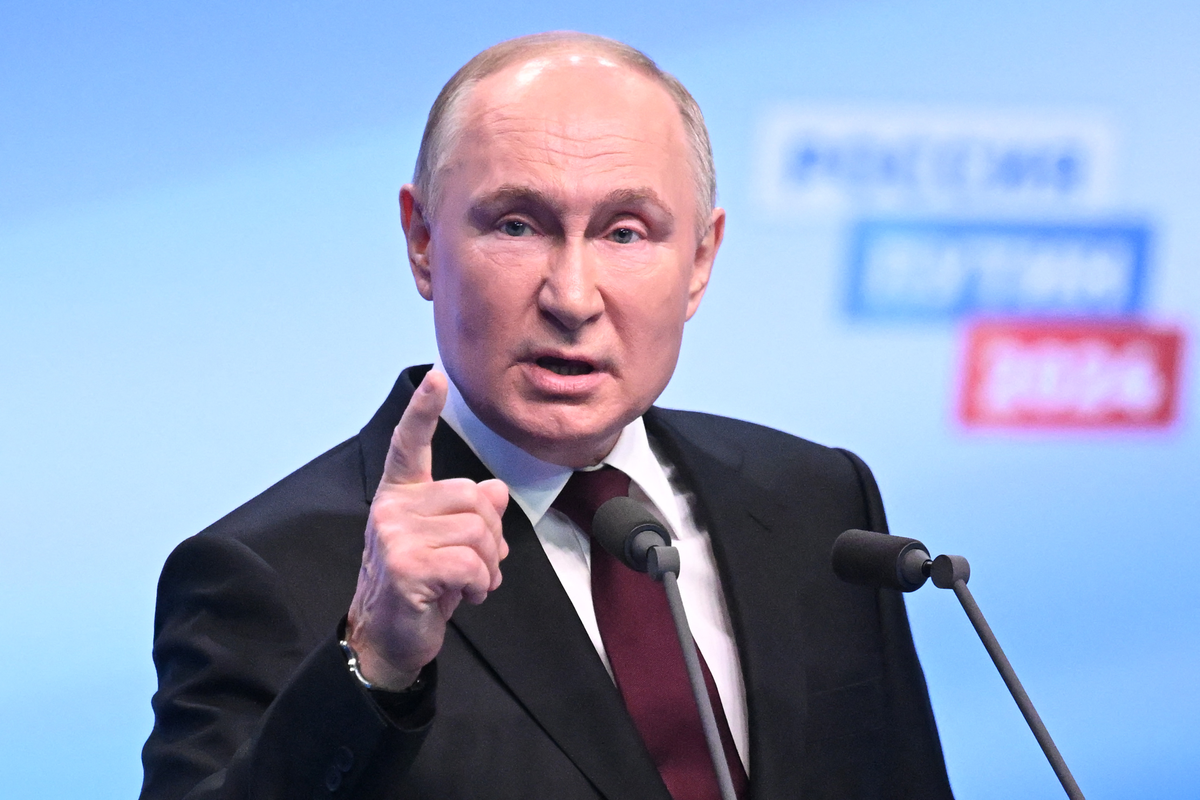Putin spy chief visits pariah North Korea state to deepen ties as it 'supplies arms for Ukraine war'

Vladimir Putin’s foreign intelligence chief visited the pariah state of North Korea to deepen ties between Moscow and Pyongyang, officials said.
Sergei Naryshkin, head of Russia’s Foreign Intelligence Service (SVR), the main successor to the KGB’s First Main Directorate, was in the North Korean capital from March 25-27, said Russia’s spy service.
Mr Naryshkin met North Korean Minister of State Security Ri Chang Dae.
“They discussed topical issues of the development of the international situation, ensuring regional security, and deepening Russian-North Korean cooperation in the face of attempts to increase pressure from external forces,” the SVR was quoted as saying by Russian state news agency TASS.
KCNA, the state media service for the reclusive North Korean state, said the two sides discussed further boosting cooperation to deal with the “ever-growing spying and plotting moves by the hostile forces”.
Putin’s military is reported to have received large quantities of munitions, as well as missiles, from North Korea for his Ukraine war, though Moscow denies this.
The Russian president has deepened ties with North Korea since the 2022 invasion of Ukraine, and the United States and its allies have condemned what they say have been significant North Korean missile deliveries to Russia to help its war effort.
Putin gave North Korean leader Kim Jong Un a luxury Russian Aurus limousine as a gift, the Kremlin said in February.
Meanwhile, Leading Russian human rights group Memorial has warned that the health of its jailed 70-year-old head, Oleg Orlov, is deteriorating, accusing prison authorities of subjecting him to inhumane treatment.
Orlov, a leader of Memorial which won a share of the Nobel Peace Prize in 2022, was sentenced last month to two-and-a-half years in prison for “discrediting the armed forces” after he took part in anti-war demonstrations and published an article in which he said Russia had descended into fascism.
He has since filed an appeal.
Memorial said on Wednesday that Orlov’s health was suffering due to a strict diet of “dry rations” added to boiling water.
He is also forced at the request of the judge to make daily trips between the detention centre and the court to review the case materials for his appeal, travelling in an unheated and smoke-filled police van, the group said.
It also said he is not being granted regular and confidential access to his lawyers.
“Orlov’s constant trips to court, as well as the conditions of transportation and detention during trips, together constitute cruel and degrading treatment and violate Orlov’s rights,” his defence team wrote in official complaints it filed to the court and posted on Memorial’s website.
“The current situation gives me serious fears for the life and health of my client,” the complaint says.
Memorial, founded in 1989 to document human rights abuses in the Soviet Union, has decried the case against Orlov as an attempt to “drown out the voice of the human rights movement in Russia.”
The organisation said earlier this month that Orlov was asked in detention to sign a form indicating his willingness to fight in Ukraine, despite his age.
Orlov laughed off the request, Memorial said, writing “’I don’t agree.”


